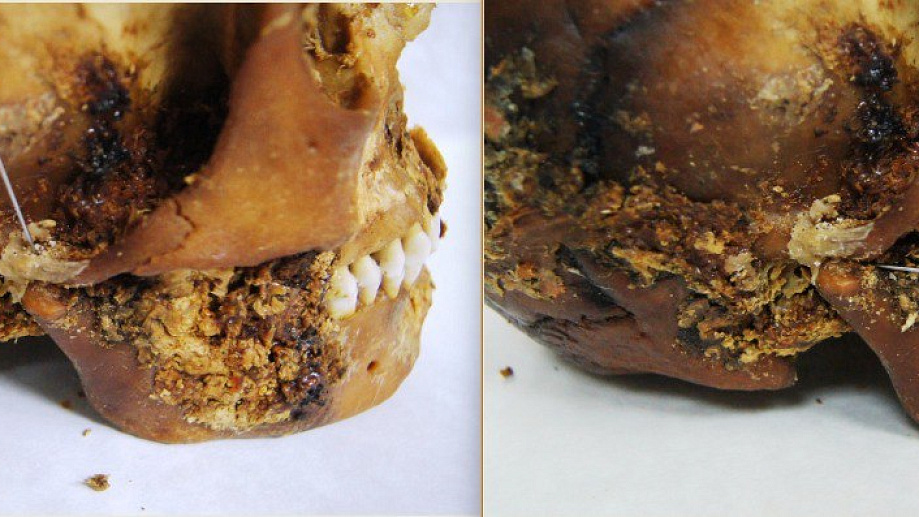Herbal Tea Error Leads to ER Visit

Get the world’s most fascinating discoveries delivered straight to your inbox.
You are now subscribed
Your newsletter sign-up was successful
Want to add more newsletters?

Delivered Daily
Daily Newsletter
Sign up for the latest discoveries, groundbreaking research and fascinating breakthroughs that impact you and the wider world direct to your inbox.

Once a week
Life's Little Mysteries
Feed your curiosity with an exclusive mystery every week, solved with science and delivered direct to your inbox before it's seen anywhere else.

Once a week
How It Works
Sign up to our free science & technology newsletter for your weekly fix of fascinating articles, quick quizzes, amazing images, and more

Delivered daily
Space.com Newsletter
Breaking space news, the latest updates on rocket launches, skywatching events and more!

Once a month
Watch This Space
Sign up to our monthly entertainment newsletter to keep up with all our coverage of the latest sci-fi and space movies, tv shows, games and books.

Once a week
Night Sky This Week
Discover this week's must-see night sky events, moon phases, and stunning astrophotos. Sign up for our skywatching newsletter and explore the universe with us!
Join the club
Get full access to premium articles, exclusive features and a growing list of member rewards.
A woman in England was rushed to an emergency room with life-threatening symptoms after she mistakenly used the leaves of a poisonous plant to make an herbal tea, according to a new report of her case.
The 63-year-old woman recovered after receiving treatment, according to the report, which was published today (Dec. 1) in the journal BMJ Case Reports.
The plant that the woman used to make the tea, called foxglove, contains potentially harmful compounds that act on proteins called ion channels in heart cells, and can cause a person's heart rate to slow down, said the lead author of the report, Dr. Mathew Kurian Vithayathil, a doctor at the King’s College Hospital in London, who treated the woman. [10 Amazing Facts About Your Heart]
The woman came to the emergency department in April 2016, Vithayathil told Live Science. When she was admitted to the hospital, her symptoms included vomiting, irregular heartbeat and lightheadedness, according to the report.
When the doctors examined the woman, they found that her heartbeat was slower than normal and her pulse was irregular. However, the woman had no history of heart problems and was not taking any medications.
However, the woman told her doctors that, the night before, she had tried a new herbal remedy — a tea made from the leaves of a plant named comfrey — that her friend had recommended to help the woman treat her insomnia. The woman took her friend's advice and purchased a product at a local market that was labeled as comfrey leaves.
She then mixed the leaves with hot water at home and drank the tea. But she developed the symptoms in just a few hours.
Get the world’s most fascinating discoveries delivered straight to your inbox.
Because the woman had not previously had heart problems, and she did not take medication, her doctors suspected that the herbal tea caused her symptoms. [27 Oddest Medical Cases]
But when they looked up "comfrey" on the National Poisons Information Service (NPIS) website, they did not find any information about its potential toxicity. However, when the researchers extended their search to other web sources, they found that the comfrey plant resembled — and was easy to confuse with — the foxglove plant, which contains potentially toxic compounds that might have caused the symptoms that the woman experienced.
When the doctors examined the woman's blood composition, they found increased levels of one such compound, called digoxin, in her blood. They treated the woman with an antidote for this compound and monitored her condition for the next five days until her heart rate went back to normal. After that, she went home.
The new report shows that, although herbal remedies may seem harmless, they can also be potentially fatal, especially if they are sold or purchased by people who have limited knowledge of plants, the researchers said.
Originally published on Live Science.
 Live Science Plus
Live Science Plus











